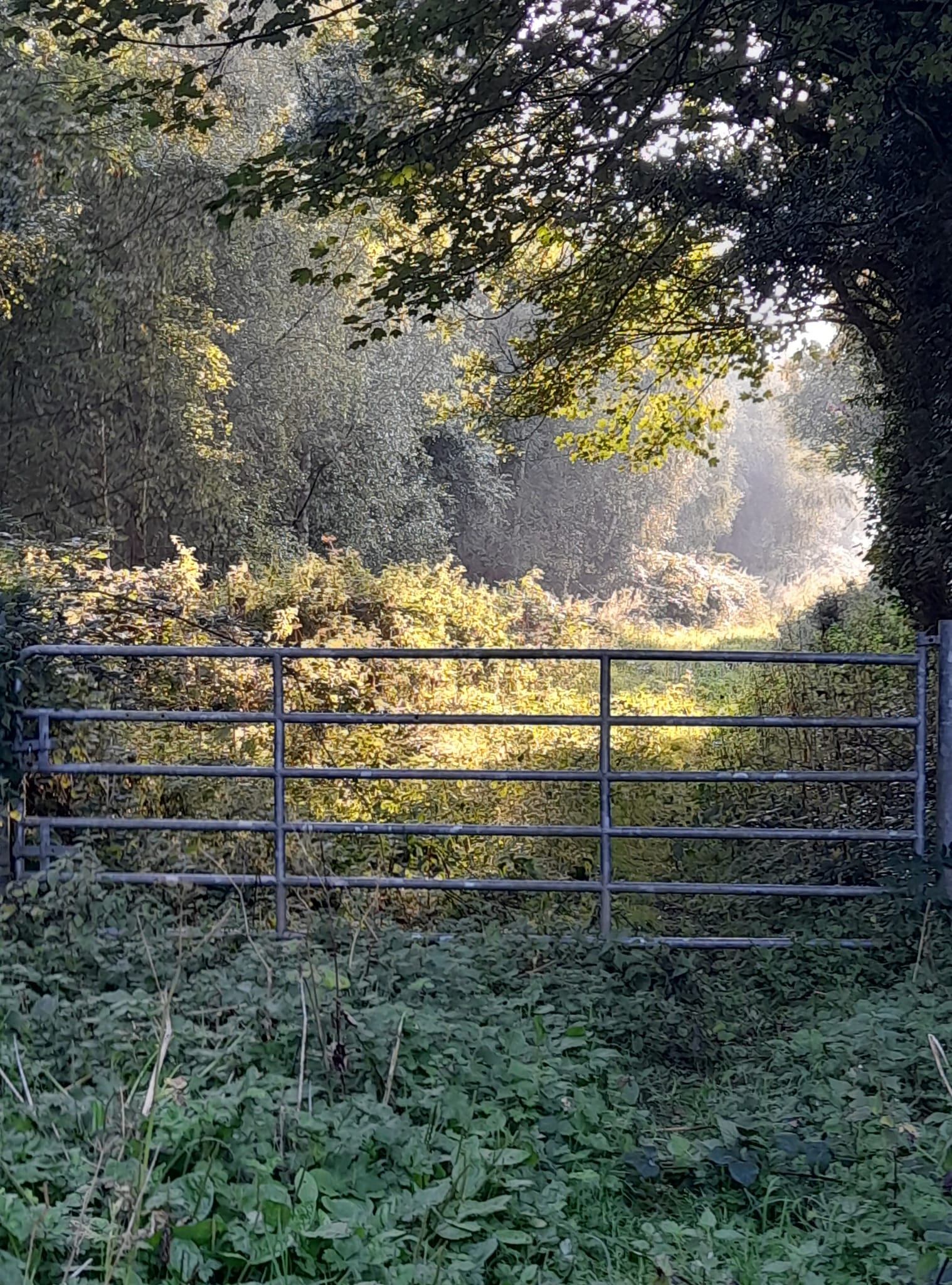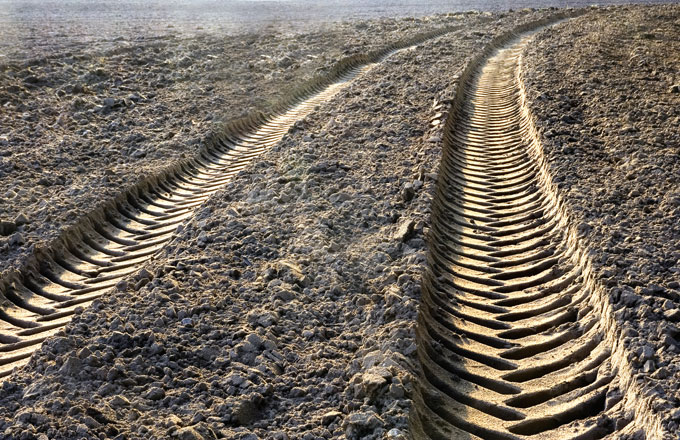Nature Restoration Law – cutting through the noise

21 November 2023 By Fintan Kelly and Ciaran Brennan
There has been a lot of noise around the Nature Restoration Law, most of it coming from expected quarters. Urging MEPs to oppose the law which was agreed earlier this month following negotiations between the EU Parliament, Commission and Council, the Irish Cattle and Sheep Farmers’ Association said farmers were horrified that they may have to rewet land and said it is also concerned about how nature restoration will be paid for. ‘Growing unease’, ‘grave concerns’ and ‘dynamite for peatlands’ were some of the phrases used in one article in the Irish Farmers’ Journal on the NRL.
It is small wonder that confusion and misconceptions around the NRL persist. But given the grave state of biodiversity in Ireland and throughout Europe, it has never been more important to cut through the noise, distinguish the important information from the irrelevant, incorrect and distracting commentary and focus on what the law actually proposes.
The new law sets a target for the EU to restore at least 20% of the EU’s land and sea areas by 2030 and all ecosystems in need of restoration by 2050.
Of all measures proposed, rewetting of farmed peatlands has been by far the most contentious issue in Ireland and a significant political talking point at EU level. This should not have been the case, but a concerted misinformation campaign resulted in the whole section covering agriculture and rewetting being removed by the European Parliament. However, sense prevailed and rewetting targets made it back into the law agreed in the trilogue negotiations. Rewetting remains a lightning rod for farming bodies as evidenced by the coverage in farming media. Given some of the commentary, it is no surprise that farmers on the ground have fears about being forced to rewet huge swathes of land – but this is not what is being proposed.
Firstly, it is important to say that the term ‘rewetting’ is misleading. What the NRL is proposing is akin to existing Irish policies of reduced management intensity and water table management. What this means in practice is that a farmer may choose to raise the water table within a peat soil towards the surface. Raising the water table even by small increments can greatly reduce greenhouse gas emissions without necessarily halting productive farming activity. This is not about flooding land, it’s about managing soils in a way that ensures they store carbon.
Secondly, it is important to acknowledge that Ireland already has far more ambitious targets for rewetting to 2030 in our own Climate Action Plan which has been agreed by the Oireachtas. The Department of Agriculture themselves adopted rewetting targets back in 2020 as part of the sector’s ‘road map to carbon neutrality,’ and farming bodies like the IFA had been supportive of some form of rewetting (often referred to as carbon farming) as long as it was funded and voluntary. Bodies like the EPA and the Climate Change Advisory Council have been explicit that rewetting of some form is needed to shut off the emissions pump coming from drained peat soils. At the moment farmers in the midlands are already involved in the Farm Carbon and Farm PEAT pilot projects, which are to form the blue-print of future agri-environmental schemes which will be voluntary and funded.
Finally, the Government has stated previously that, in the short-term, the emphasis of rewetting would be on Bord Na Mona and Coillte land, giving ample time to develop the kinds of agri-environmental schemes that farmers will want to participate in. The current text confirms that actions will be voluntary for farmers and funded with new money in addition to CAP. The irony is that the current peatland targets are much weaker than the original NRL text which represents a missed opportunity in helping us towards meeting Ireland’s own climate targets.
As for concerns about how nature restoration will be paid for, the NRL commits that within 12 months of the law coming into force the EU Commission will produce a comprehensive report on funding requirements and opportunities. In addition, the Irish government has already committed €3bn to a new Climate and Nature Restoration Fund in Budget 2024. Some politicians have argued that CAP funds should not be used to fund the NRL, but this isn’t possible as many aspects of the NRL relate to implementation of existing laws. The political decision was already made that the CAP budget, as opposed to the EU Nature budget, would be the tool to pay farmers to deliver environmental and climate measures. It therefore isn’t credible that CAP won’t fund NRL at all, although all stakeholders agree new funding is needed for heightened ambition and new obligations.
Arguments made by the ICSA in an article in Argiland.ie, that “the Commission does not respect the democratic mandate of the EU Parliament in its zeal for driving through the Green Deal with no balancing concern for food security” just don’t stack up. Nature Restoration and Climate Action are clearly necessary to protect food production at home and abroad. We have seen that in the catastrophic impact that droughts have had in Spain this summer and the impact that flooding is having on Ireland’s own tillage and horticultural sectors.
There is a clear public mandate for a NRL, as reflected in polling & the Citizens’ Assembly on Biodiversity Loss recommendations. The Government and the Dáil also overwhelmingly supported the NRL. All Irish MEPs voted to support the NRL, and the main opposition group EPP have said that they are satisfied with the concessions that have been made in negotiations.
And the law has been scrutinised, debated and negotiated to an unprecedented extent. It will now go to a final vote in parliament. So there has been no ‘democratic deficit’ in formulating the Nature Restoration Law.
Politics is the art of the possible, the attainable — the art of the next best, as Otto von Bismarck once said. And for all concerned, the Nature Restoration Law is a compromise rather than a victory for any particular side. For many environmentalists, the agreement has come at a high cost, with the level of ambition of the law having been hollowed out with lower targets, derogations and loopholes. However, they recognise that the law, if adopted by the European Parliament, will be a step in the right direction if we want to address the biodiversity and climate crises. But it’s clear that countries like Ireland will need to go beyond the ambition of the law if we are going to restore nature and halt climate breakdown.
Looking behind the headlines, the negative commentary and disinformation, the NRL is actually a great opportunity for farmers. We have seen that there is a massive demand for agri-environmental schemes, with ACRES having been oversubscribed. Irish farmers have played a pivotal role in the development of results-based/locally-led schemes which have influenced agri-environmental schemes across Europe. Society wants public money to be used to support public goods like a biodiverse and healthy environment, and green payments are an effective way to support both small and marginal farms. Many of our most threatened habitats and species need farmers’ support, but many of our most threatened farms also need the support of agri-environmental payments to remain viable.
Mis-information and scaremongering have negatively impacted the NRL, but it is likely the law will be adopted. Now is the time for all stakeholders to engage positively in maximising the benefits for nature, farmers and society.






